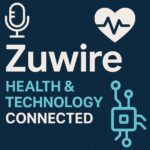
In today’s rapidly evolving medical landscape, technology is transforming patient care at breakneck speed. From telemedicine and wearable devices to AI-driven diagnostics, these innovations are not just changing tools—they’re reshaping the delivery of care entirely. But the key to meaningful progress lies in the people using these tools: physicians.
Harvard Medical School argues that doctors should be more than frontline users—they must actively shape technology development. Without clinical insight, the gap between innovation and implementation widens, leading to solutions that are technically impressive but practically ineffective learn.hms.harvard.edu.
Why Physician Involvement Matters
Many health tech products fail in real-world settings because they’re built without enough clinical input. This can lead to devices that are overly complex or fail to meet genuine patient and provider needs—ultimately wasting resources and trust .
Physicians bring firsthand knowledge of workflows, constraints, and patient realities. Their participation ensures innovations are not merely technologically advanced but also relevant, user-friendly, and patient-centered.
Ways Doctors Can Drive Innovation
The Harvard post outlines several practical paths for physicians to lead tech change learn.hms.harvard.edu+2learn.hms.harvard.edu+2learn.hms.harvard.edu+2:
- Active participation in development — from beta testing to feedback roles.
- Consulting with startups and health systems to align tools with real-world clinical priorities.
- Advisory positions in product development to ensure usability.
- Leadership roles within health tech organizations or hospital innovation teams.
Getting Started in Health Tech
Physicians keen on contributing can explore several options:
- Education and training: Attend workshops, certificate programs, and seminars to stay abreast of innovation trends.
- Networking: Join industry groups and attend conferences; associations like AMA, AMIA, and HIMSS offer rich engagement opportunities learn.hms.harvard.edu.
- Advanced degrees: A Master’s in Health Informatics or an MBA can enhance impact—but they’re not mandatory.
- Online engagement: LinkedIn groups and digital forums connect clinicians with peers and startups.
Broader Impacts of Physician-Led Innovation
When clinicians drive technology, the benefits aren’t confined to device adoption—they ripple across the system:
- Improved patient outcomes through clinically proven interventions.
- Enhanced efficiency and safety in care workflows.
- Better clinician satisfaction because tools solve real problems.
- More cost-effective solutions thanks to targeted development efforts.
The Time Is Now
The health tech sector is booming, but its true potential hinges on clinician involvement. Physicians are uniquely positioned to shape the future of care, ensuring technologies from telehealth platforms to AI diagnostics deliver real-world value.
If you’re a physician wondering how to get involved, consider this your invitation: step into the venture room, the innovation lab, or the advisory board. Influence the design. Test the tools. Provide feedback. It’s not just about adopting technology—it’s about leading its evolution.
Final Thought
The next wave of healthcare innovation doesn’t come from gadgets alone—it comes from the hands and minds of clinicians who understand patient care deeply. When physicians take the wheel in shaping technology, we’ll see health solutions that are powerful and practical, designed to work where it matters most: at the bedside.
Would you like help drafting a call to action for your hospital’s innovation team or tips on where to begin?

Leave a Reply